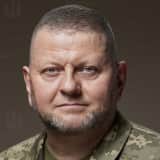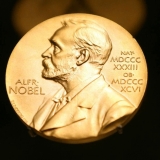Putin is going for Broke
Like a second-rate poker player who, on the point of losing everything, keeps frantically doubling his bet in the mad hope that the other players will fold, Vladimir Putin, on September 21, pushed his last chips onto the table: "partial" mobilization of fighting-age Russian men, "referendums" in the occupied Ukrainian territories followed by a formal annexation, and renewed nuclear threats – going "all-in," to use the very words of Margarita Simonian, the director of the Russia Today TV channel, one of the main hawks of the regime.
Bluffing, up to now, has served Putin well. Every time the "collective West," as he calls it, grumbled before one of his aggressive moves — the annexation of Crimea and the occupation of Donbass in 2014, the massive intervention in Syria in 2015, the power play of the Wagner mercenaries in the Central African Republic, Libya and Mali – he raised the stakes; and our leaders, at a loss in the face of so much chutzpah, conceded the hand after a few vague protests or minor sanctions, while never ceasing to gorge on his oil and his gas, thus directly financing the destabilization campaigns aimed at them. But Putin lacks the main quality of a good poker player: the capacity to judge his opponent, to read him.
Putin, who is incapable of even comprehending the free spirits of his own country, has never understood the Westerners he hates and has so much contempt for. Thus he has never understood that in spite of all our concessions and all our failures we too have limits, beyond which there is no way back. His invasion of Ukraine, on February 24, has crossed this line. Today, Russia is now perceived as an existential threat for the entire post-1945 world order, and even a nuclear threat will not make us give up Ukraine.
The mobilization decreed by Putin must be put into perspective, and the Ukrainians are right not to be terribly concerned about it. The men forcefully called up will receive little or no training, they will be provided with second-rate equipment taken from old stocks, when they are not forced to buy their own, and will only rapidly be deployed at the cost of any effectiveness. At best, they will plug some holes in the Russian defenses, but they will be of no use for an offensive.
As Volodymyr Zelensky bluntly declared on September 22, speaking in Russian to address directly the new draftees and their family: "You can protest, rise, run, or surrender to Ukrainian forces. These are your options for survival".
This mobilization, however, already has a severe political cost for Putin, which explains why he held it off for as long as possible, in spite of massive pressure from the army and nationalist circles. Hundreds of thousands of men are fleeing the country by all means possible, and for the others, those being torn away from their families to serve as cannon fodder, the regime and its war already appear in a new light.
Suddenly, the vatniki – to use a term popular in Ukraine, which refers to the bulk of the Russian population wrapped in the thick apathy of Putin’s propaganda as they would be in a comfortable padded coat – find themselves naked, and it is cold.
Furthermore, in spite of Putin’s promises, there is nothing partial about this mobilization. Whether by plan or by excessive zeal, the regional governors are not only mobilizing the men meeting the announced criteria (military experience), or perhaps also some arrested demonstrators, but also heads of large families, employees of strategic enterprises, students that the police has gone to pick up in their classrooms, and in some cases sick and handicapped men.
Even some of Putin’s closest supporters have felt obliged to protest against these "excesses".
As for the so-called "referendums," hastily organized after the humiliating Russian losses in the North, they remain pure fictions. The residents of the occupied regions voted in front of armed soldiers, the ballot boxes were stuffed to obtain the desired results, and the "results" were never in doubt.
The annexation that followed them on September 30 is obviously recognized by no one, except a few of Russia’s closest cronies, and the Ukrainian government has already stated that it would change nothing. But for Putin it changes everything: by declaring these territories part of the Russian federation, he can discursively transform his war of aggression against his neighbor into a defensive war.
The Russian constitution forbidding the return of any annexed territory, Russia is now locked into perpetual war, and will continue losing territories it now considers its own.
Which brings us to the nuclear threats. Russian military doctrine tolerates the use of nuclear weapons at a much lower level of threat than Western doctrines, in case the country’s territorial integrity should be threatened.
Since the 1990s, furthermore, Russia – conscious of its military weakness in comparison with NATO – has built up massive stocks of so-called "tactical" nuclear bombs, smaller than the one used on Hiroshima but still capable of leveling several square kilometers while emitting vast quantities of lethal radiation.
The theory is that by using such a weapon against the Ukrainian forces, the violation of the nuclear taboo would cause such a shock in the West, and such a fear of a broader nuclear conflict, that we would force the Ukrainians to give in to Russian demands: "escalate to de-escalate" is what American strategists call this.
One should of course take the Russian threats seriously, very seriously. Vladimir Putin has always spelled out what he would do and has nearly always done what he said he would, and his mad escalation could indeed provoke a catastrophe.
The mysterious sabotage of the Nord Stream 1 and 2 pipelines in the Baltic Sea are probably also part of this strategy of intimidation, exposing the vulnerability of our most critical infrastructure. But even a nuclear attack will not prevent the Ukrainians from fighting on till the bitter end, with a wildly increased determination and hatred. As President Zelensky recently declared: "Cold, hunger, darkness and thirst are not as terrible and deadly for us as your "friendship and brotherhood"".
Nor are we helpless in the face of these threats. Putin and his generals perfectly understand that NATO is infinitely more powerful than them, and capable of a wide range of responses to a nuclear violation.
Secondary sanctions could target any country buying Russian oil and gas, as well as insurers and shipping companies, depriving Putin of his last source of revenue. The Americans, till now, have been careful not to give the Ukrainians certain weapons, fighter jets, long-distance missiles, heavy tanks: this leaves the door open to do so in the future.
NATO could also directly intervene in the war, perceiving it as threatening Europe, and could do so using conventional weapons, cruise missiles and aviation targeting the Russian combat infrastructure on Ukrainian soil. Jake Sullivan, President Biden’s National Security Advisor, thus declared on September 25: "We have communicated directly, privately and at very high levels to the Kremlin that any use of nuclear weapons will be met with catastrophic consequences for Russia, that the US and our allies will respond decisively, and we have been clear and specific about what that will entail".
Finally, it is evident that Putin’s "allies," China and India first and foremost, are growing tired of their cumbersome friend and his useless war, which is hurting the economy and global trade and directly affecting their interior stability.
Xi and Modi, during the recent security meeting in Samarkand, did not shy from telling him so, diplomatically in the case of the former, more bluntly for the latter. One can hardly imagine that a nuclear strike would leave them indifferent: unlike Russia, these two powers have reached their current status thanks to the existing world order, and while they want to alter its rules to their advantage, they do not want to bring it down. Furthermore, the Taiwan case makes the intangibility of borders a linchpin of China’s foreign policy.
Putin knows he cannot do without his last diplomatic supports, as well as his last economic avenues and his last source of electronic components. Having chosen to turn his country into a vassal of China, he can no longer turn back.
In September 2004, addressing his nation after the terrorist attack against School no.1 in Beslan (the botched Russian assault against the hostage-takers had just caused the deaths of 333 hostages, including 186 children), Putin, while already hinting at Western support for the attackers, put forth the following implacable conclusion: "We showed ourselves weak. And the weak get beaten".
Since February 24th, the day he invaded Ukraine, Putin has only been displaying his weaknesses to the world. Military weakness first and foremost, with the degree of incompetence, corruption, criminalization and catastrophic lack of discipline and motivation of his army now apparent to all.
Political weakness next, as violent protests provoked by his mobilization already spread through the country, without the authorities quite knowing how to react. Strategic and diplomatic weakness finally, with his incapacity of imagining a way out of a war he knows he has already lost. His last raise only cruelly illuminates the fragility of the cards in his hand. "This is not a bluff," he stated during his February 21 speech. Very well. Let us then, faced with this final "all-in," categorically refuse to fold, and place our own cards on the table, to "call" as they say. Putin, trapped by his mistakes, will not survive a victory of Ukraine. It is up to us to insure this victory, which is the precondition to the return of peace and of economic and political stability in Europe.
Jonathan Littell






